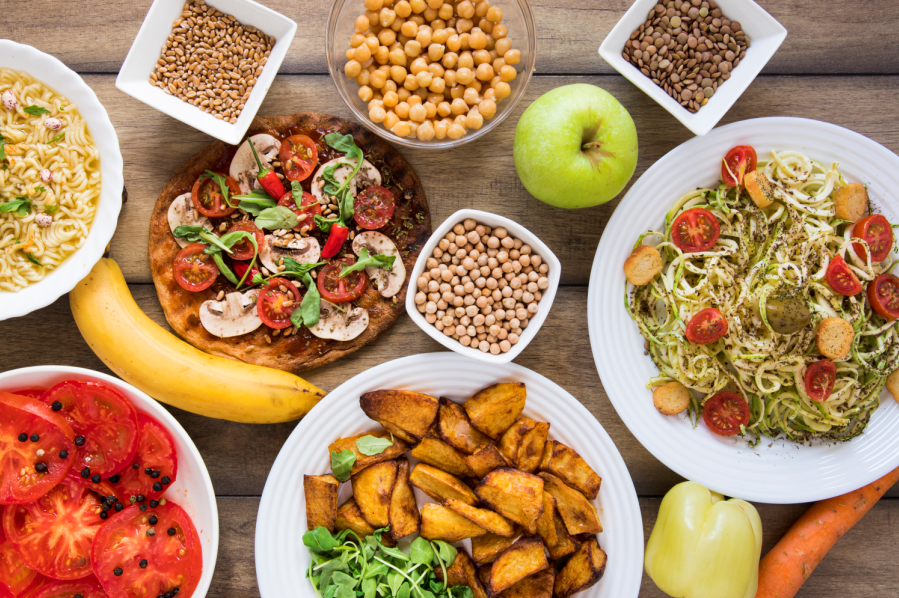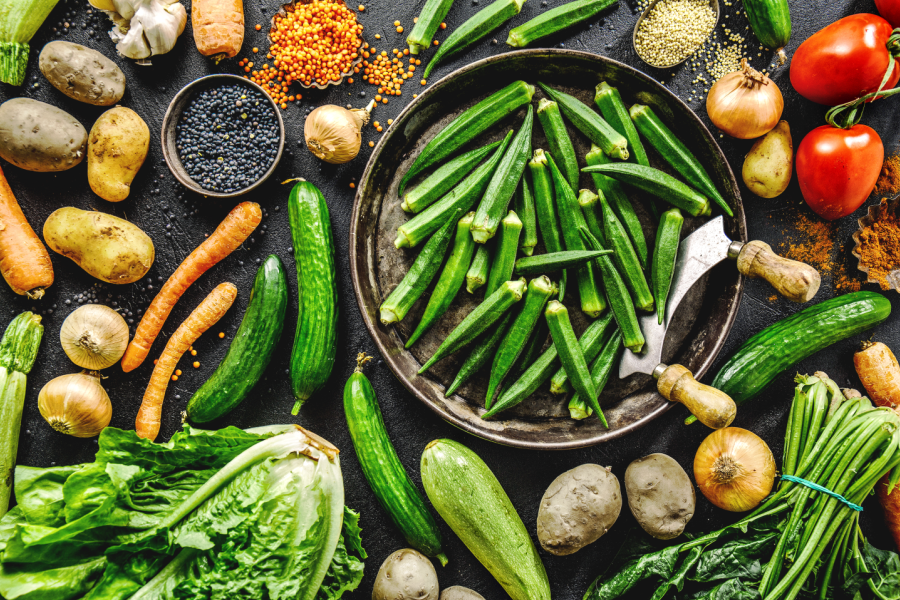Is Plant-Based Eating More Sustainable?
24.12.2019 GREEN LIVING 0
Source
Veganism, as a diet and overall lifestyle, has existed for thousands of years. It's become more mainstream as of late, particularly with younger generations. The effort to eat vegetables, fruits and grains instead of animals is somewhat of a hot topic. Some believe doing so is healthier for both the body and the planet, while others argue that veganism isn't actually the best option.
How Can Vegan Diets Help?
Today, most people are looking for ways to live more sustainable lives. Our planet has endured decades of issues related to climate change. Movements, such as the one to stop production of single-use plastics, have taken the world by storm. A part of these efforts is the recent surge in vegan, plant-based diets. Many go vegan for one or all of these reasons: to improve their health, save animals and help the planet.
Health
Eating plant-based foods is a fantastic way to lead a healthier lifestyle. Doing so can provide you with a host of benefits, such as weight loss and disease prevention. Meat can have detrimental effects on your body, especially when you buy it from supermarkets, which get their goods from commercial farms. Even if you don't immediately give up meat, buying fruits and vegetables every time you go to the store can provide the diversity you need in your diet.
Animals
Over time, our agricultural system has shifted drastically. Now, factory farms supply the majority of our meats. These facilities raise cattle, swine and poultry in often horrifying conditions. Many individuals choose to eat vegetarian or vegan food to help save these animals from abuse. This can also relate to our health, as it's important to remember that when we eat animals, we're eating what they once did. Many farms cut costs by feeding their cattle grain instead of grass, which is something to consider.
Source
Planet
Nearly 1,800 gallons of water are required to make 1 pound of beef. In a world where millions of people don't have access to clean water, this seems like an extraordinary waste. It's also necessary to point out that animal production contributes to a decent amount of greenhouse gas emissions. Other farming processes, like fertilization, make their mark as well. Habitat destruction, such as that of the Amazon rainforest, is typically committed as a means to clear room for cattle farms.
Eating a plant-based diet is certainly more environmentally friendly for these reasons alone.
What Does Farming Have to Do With It?
We can't just stop producing meat at the drop of a hat. How we use our land is an essential factor in sustainability. Farmland is typically divided into three categories:
- Pasture – used to feed livestock
- Permanent – used to grow year-round crops, like grain
- Arable – used to grow seasonal produce, which must be replanted
If we switched to plant-based diets, our agriculture system would rely solely on cultivated cropland. As a consequence, a good amount of farmland would sit unneeded. Converting one type of land to another isn't exactly sustainable, either. Soil can only be utilized for particular purposes, so trying to grow hay where cows were just grazing can cause issues. When we consider the current amount of available land we have, a vegan diet could only realistically feed about 735 million people.
Where You Shop Matters
Taking on a vegan lifestyle is more than just eating plant-based food. Thousands of companies have now created quick alternatives to meat and dairy products. You can buy tofu chicken nuggets in the frozen aisle and choose from a plethora of different kinds of soy milk. Accessibility definitely has its benefits – more people realize they can eat vegan, too. This is all well and good until those very same brands manufacture items in ways that harm the environment.
Take Burger King, for example. The fast-food restaurant, among some of its competitors, now offers the Impossible Burger, a vegan patty made to look like a hamburger. Vegans typically struggle to find quick, plant-based alternatives like this, which is why it's so appealing. Yet Burger King, as a whole, isn't sustainable in the slightest. In fact, the company makes some pretty horrible environmental decisions.
Voting with your dollar is important, especially when you're trying to respect the planet. Unfortunately, not everyone can buy from and support local organic farms. Doing so may be more expensive or simply not viable. If you can, though, this should be a priority. If your food is traveling miles to get to you, it's negatively impacting the Earth. That said, not all commercial farms are damaging the environment on a massive scale — just as no small farm is the perfect example of sustainability.
The Verdict
Ultimately, vegan plant-based diets are more sustainable, but only in some ways. They're healthier, animal-friendly and cut down on greenhouse gases. That said, they're not entirely feasible for feeding the entire planet. Until the large, big-box companies change their ways, agriculture won't be sustainable, even if we're just growing plants.
Written by Jennifer Landis
About the Author
Jennifer Landis is a mom, wife, writer, and blogger at Mindfulness Mama. She’s quite fond of peanut butter, distance running, yoga, and drinking as much tea as possible. Find her on Twitter @JenniferELandis.
You may also like
The Most Effective Steps That Help You Become More Environmentally-Friendly
Sustainable Living 101: Here Are the Changes That Can Make a Huge Difference
4 Reasons Why You Should Be Buying Organic Right Now
Comments:


